Carole King stands among the most celebrated figures in music history, renowned for her transformative role as a singer-songwriter. With a career that spans over six decades, she has left an indelible mark on pop music, earning acclaim as both a solo artist and a prolific songwriter. Carole’s music has defined generations, touching the hearts of millions worldwide. This article delves into her biography, career achievements, and current endeavors, revealing the story behind this legendary artist.
Early Life: From Brooklyn to Brilliance
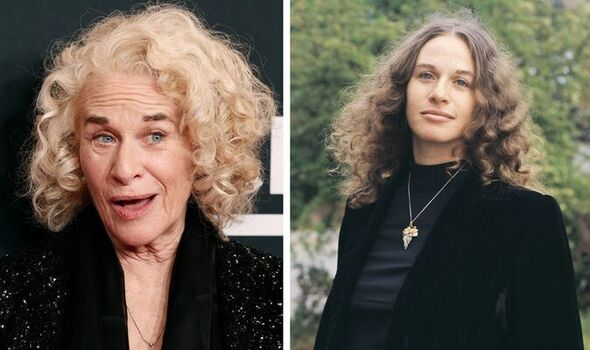
Carole King was born Carole Joan Klein on February 9, 1942, in Manhattan, New York City, and raised in Brooklyn. Her mother, a trained pianist, introduced her to music at an early age. By age four, Carole began taking piano lessons, showcasing a natural gift for music. Her passion for composing grew, and she wrote her first song as a young teenager.
While attending James Madison High School, Carole’s talent became evident as she formed her first vocal group, The Co-Sines. Later, at Queens College, she met Gerry Goffin, her future husband and songwriting partner. Together, they would create some of the most iconic music of the 1960s.
The 1960s: The Songwriting Duo of Goffin and King
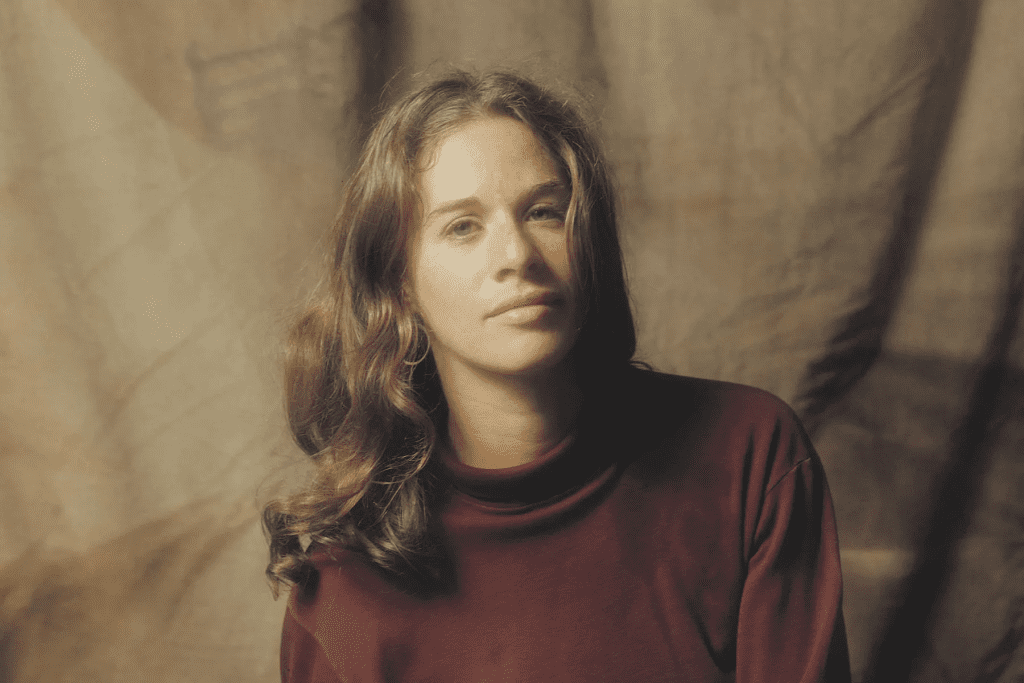
The early 1960s marked Carole King’s rise as a songwriter, working alongside Gerry Goffin. The duo became part of the Brill Building, a hub of music creators in New York City. Here, they crafted numerous hits that shaped the sound of the era. Some of their most notable songs include:
- “Will You Love Me Tomorrow” (1960): Originally recorded by The Shirelles, it became the first No. 1 hit by an all-girl group on the Billboard Hot 100. The song highlighted Carole’s ability to capture the complexities of young love.
- “Take Good Care of My Baby” (1961): Sung by Bobby Vee, this track topped the charts, further establishing the Goffin-King duo as hitmakers.
- “The Loco-Motion” (1962): Performed by Little Eva, this dance sensation reached No. 1 on the Billboard charts, demonstrating Carole’s versatility in creating catchy pop tunes.
Throughout the 1960s, Carole and Goffin continued to write hits for artists like Aretha Franklin with “(You Make Me Feel Like) A Natural Woman” and The Drifters with “Up on the Roof.” Their songs were known for relatable lyrics, catchy melodies, and emotional depth.
The Breakthrough: ‘Tapestry’ and Solo Stardom
Although Carole King found immense success as a songwriter, she felt a growing urge to perform her own music. In 1970, she released her debut solo album, “Writer,” but it was her second album, “Tapestry” (1971), that propelled her to global fame. “Tapestry” not only redefined the role of women in music but also became one of the greatest albums of all time.
The album featured some of Carole’s most iconic songs, including:
- “It’s Too Late”: A defining track of the early 1970s, this song reached No. 1 on the Billboard Hot 100 and won Carole a Grammy Award for Record of the Year.
- “I Feel the Earth Move”: With its driving piano riff and energetic delivery, it showcased Carole’s ability to blend rock and pop.
- “You’ve Got a Friend”: This heartfelt ballad became one of her signature songs and was famously covered by James Taylor, making it even more popular.
“Tapestry” won four Grammy Awards, including Album of the Year, making Carole King the first woman to achieve this honor. The album has sold over 25 million copies worldwide, cementing her status as one of the most successful female artists in music history.
Continued Success: Hits of the 1970s and 1980s
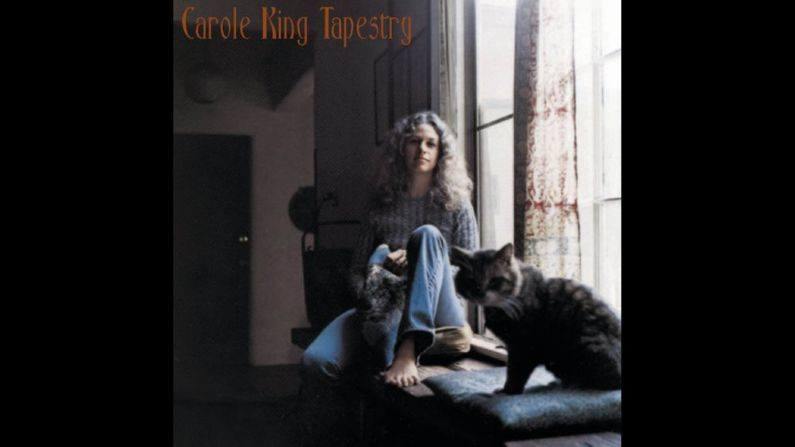
Following the success of “Tapestry,” Carole King continued to release albums that resonated with audiences. Notable works from this era include:
- “Music” (1971): Released later that same year, it featured hits like “Sweet Seasons,” which reached the Top 10 on the Billboard Hot 100.
- “Rhymes & Reasons” (1972): The album included “Been to Canaan,” a No. 1 hit on the Billboard Adult Contemporary chart.
- “Wrap Around Joy” (1974): With the jazzy hit single “Jazzman,” this album showcased Carole’s versatility, blending pop and jazz influences.
Throughout the 1970s and 1980s, Carole King maintained a steady output of music, experimenting with genres while staying true to her signature songwriting style. Her willingness to evolve kept her music fresh and engaging for fans across generations.
Carole King’s Impact on Female Musicians
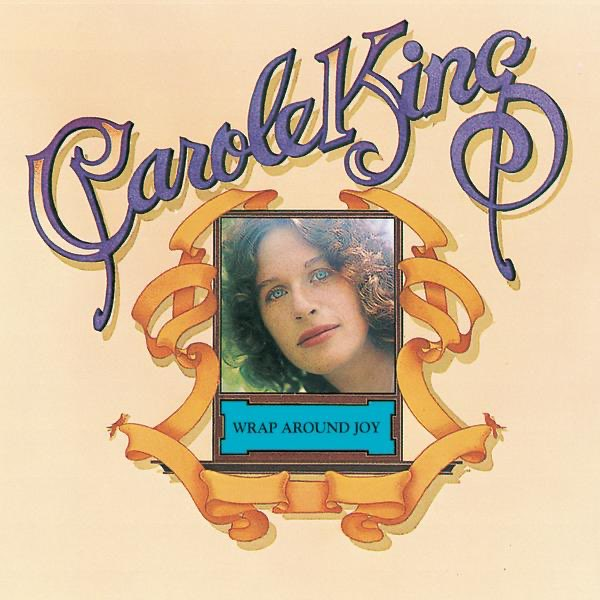
Carole King’s success set a new standard for authenticity in music, paving the way for female songwriters and performers in a male-dominated industry. Her deeply personal yet universally relatable songs touched on themes of love, empowerment, and personal growth.
Her influence can be seen in the work of artists like Joni Mitchell, Stevie Nicks, Adele, and Taylor Swift, all of whom have cited Carole as an inspiration. Her introspective lyrics and melodic genius made her a role model for countless aspiring musicians and songwriters.
Modern Legacy: Musicals, Memoirs, and Activism
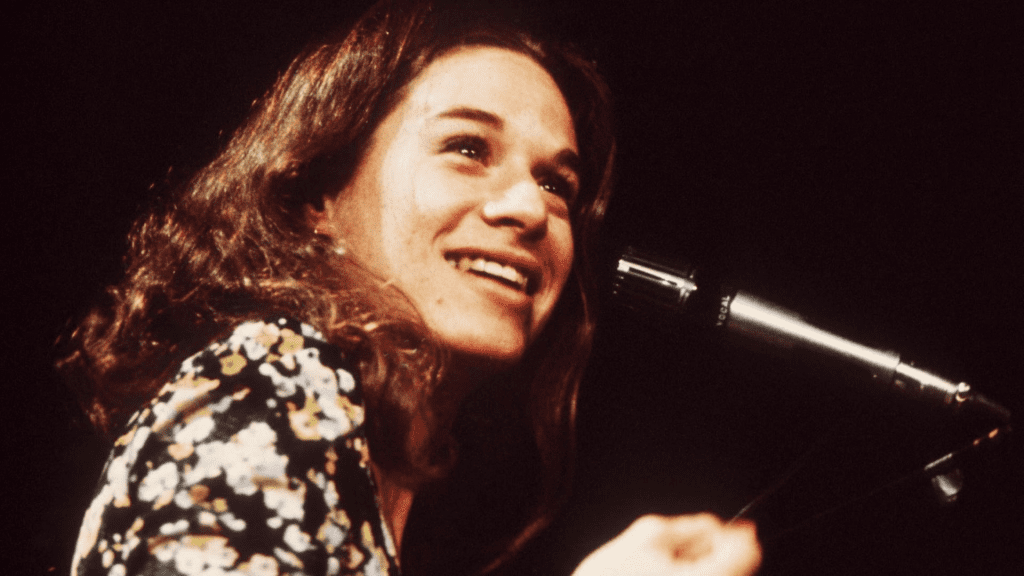
Carole King’s legacy extends beyond her earlier years of success. In recent years, she has focused on various projects, including:
- “Beautiful: The Carole King Musical” (2014): This Broadway musical chronicles King’s life, from her early songwriting days to her emergence as a global star. It has won several Tony Awards and introduced her music to a new generation.
- Autobiography, “A Natural Woman” (2012): In this memoir, King shares personal stories about her life and career, providing an intimate look into her experiences in the music industry.
Carole has also used her platform for environmental and political activism, advocating for climate change awareness, conservation, and women’s rights. Her commitment to positive change adds another layer to her lasting impact.
Honoring a Legend: Rock and Roll Hall of Fame Induction
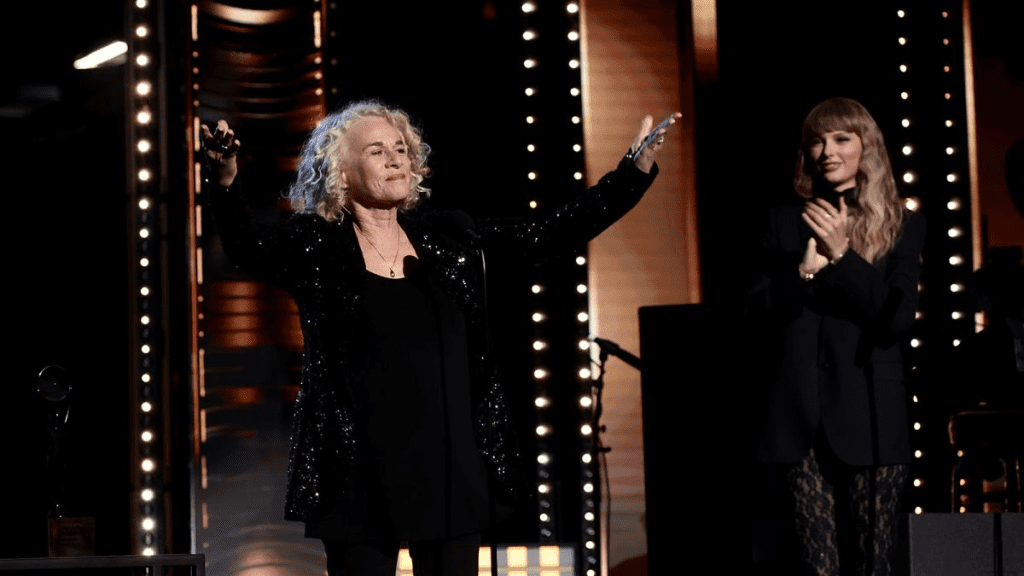
In 2021, Carole King was inducted into the Rock and Roll Hall of Fame as a solo artist, having previously been inducted alongside Gerry Goffin in 1990 as a songwriter. This second honor recognized her monumental contributions to music and culture.
Carole has navigated personal and professional challenges with grace, balancing her demanding career with her family life. As a mother of four and a four-time wife, her journey reflects resilience and dedication. Her candid discussions about the struggles she faced as a woman in music have made her a relatable figure and an inspiration to many.
Conclusion: The Timeless Influence of Carole King
Carole King’s story is one of triumph, innovation, and lasting impact. From shaping the sound of the 1960s as a songwriter to redefining the singer-songwriter genre in the 1970s, she has left an indelible mark on music. Her songs, performances, and commitment to advocacy have solidified her status as a true legend.
As Carole King continues to inspire new generations of musicians and listeners, her music and message of love, resilience, and authenticity remain timeless, echoing the journey of one of music’s greatest pioneers.


